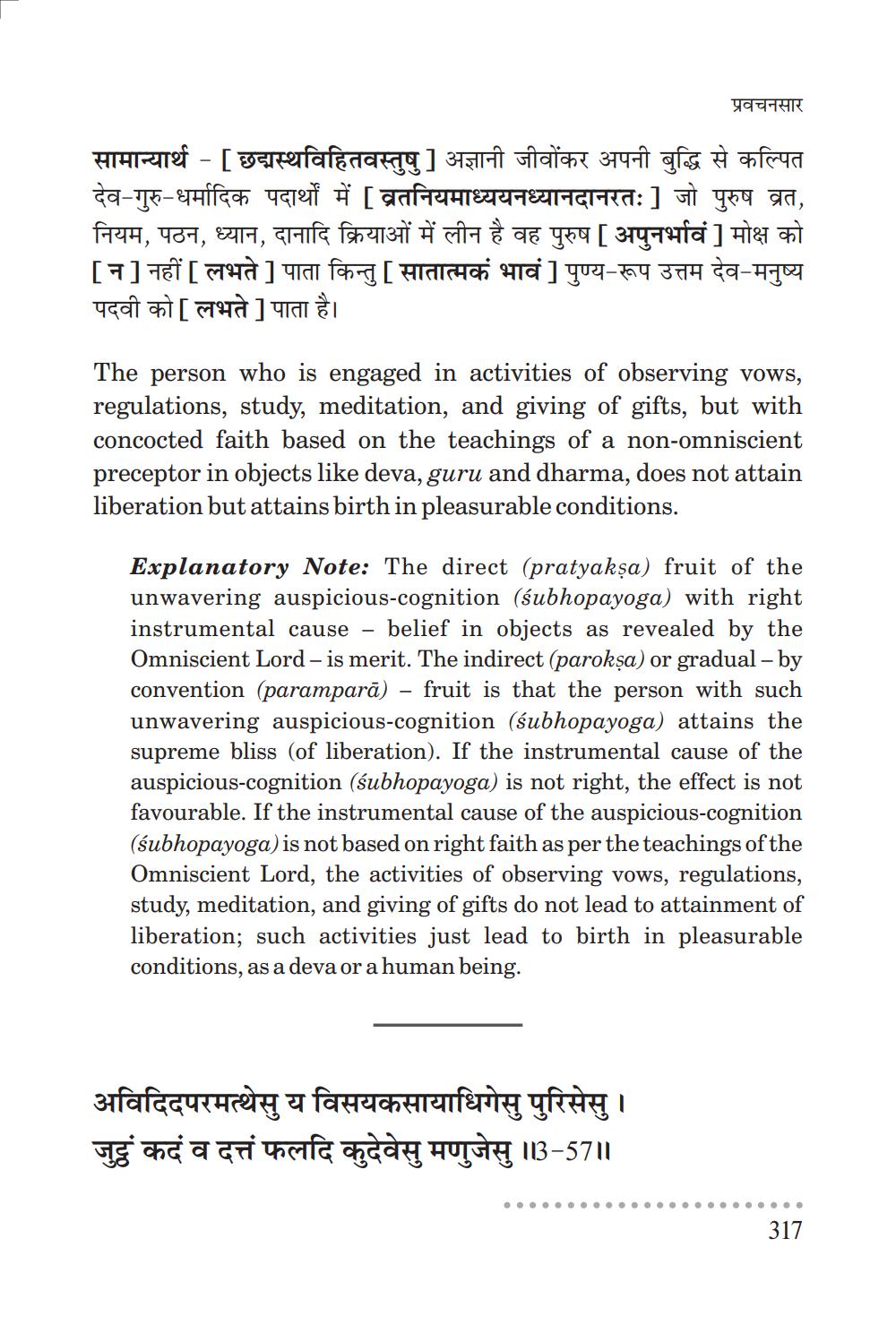________________
प्रवचनसार
सामान्यार्थ - [छद्मस्थविहितवस्तुषु ] अज्ञानी जीवोंकर अपनी बुद्धि से कल्पित देव-गुरु-धर्मादिक पदार्थों में [ व्रतनियमाध्ययनध्यानदानरतः] जो पुरुष व्रत, नियम, पठन, ध्यान, दानादि क्रियाओं में लीन है वह पुरुष [ अपुनर्भावं] मोक्ष को [न] नहीं [ लभते ] पाता किन्तु [ सातात्मकं भावं] पुण्य-रूप उत्तम देव-मनुष्य पदवी को [ लभते ] पाता है।
The person who is engaged in activities of observing vows, regulations, study, meditation, and giving of gifts, but with concocted faith based on the teachings of a non-omniscient preceptor in objects like deva, guru and dharma, does not attain liberation but attains birth in pleasurable conditions.
Explanatory Note: The direct (pratyakşa) fruit of the unwavering auspicious-cognition (śubhopayoga) with right instrumental cause - belief in objects as revealed by the Omniscient Lord - is merit. The indirect (paroksa) or gradual – by convention (paramparā) – fruit is that the person with such unwavering auspicious-cognition (subhopayoga) attains the supreme bliss (of liberation). If the instrumental cause of the auspicious-cognition (śubhopayoga) is not right, the effect is not favourable. If the instrumental cause of the auspicious-cognition (śubhopayoga) is not based on right faith as per the teachings of the Omniscient Lord, the activities of observing vows, regulations, study, meditation, and giving of gifts do not lead to attainment of liberation; such activities just lead to birth in pleasurable conditions, as a deva or a human being
अविदिदपरमत्थेसु य विसयकसायाधिगेसु पुरिसेसु। जुटुं कदं व दत्तं फलदि कुदेवेसु मणुजेसु ॥-57॥
........................
317




